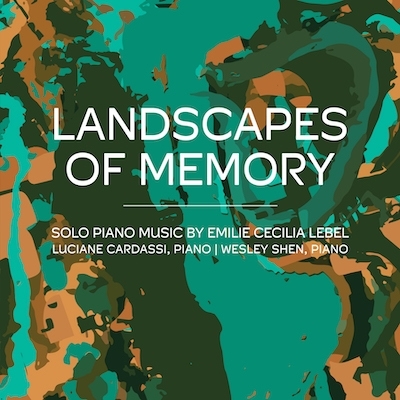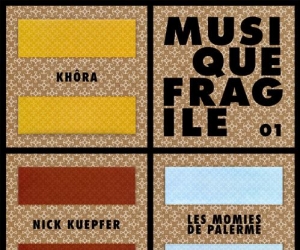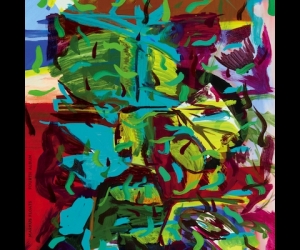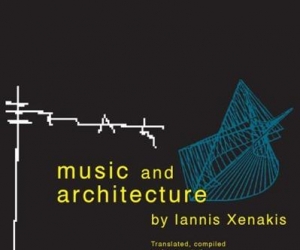
In his “Anecdote of the Jar,” poet Wallace Stevens wrote of an object which, when placed on a hill in Tennessee, became an active focal point, imposing perceptual order upon the surrounding countryside. Imagine such an effective centre for attention being projected through time, rather than simply imposed upon a spatialized moment, and you can grasp the impact of the sustained E-bow tones that extend through these two pieces for solo piano. Stevens’ jar was “gray and bare,” and LeBel’s persistent drones are comparably stark and of limited interest in themselves. At times, their presence becomes somewhat overbearing, even mildly annoying. What matters, though, is the crucial role they play in bringing compositional coherence to these landscapes filtered through acoustic memory.
Fragmentary melodic phrases hang in the air, harmonic alignments arise, taking shape and making sense in relation to gray, bare tones stretched out along the temporal axis. Even during those occasional phases when the continuance of the drone is implied rather than actually audible, the process of listening remains attuned to its coordinating focus. LeBel’s titles—Ghost Geography and Pale Forms in Uncommon Light—indicate the kind of impact she would like her music to have: elusive and haunting, like details noticed in a physical environment, preserved within the luminous yet precarious medium of recollection. Soloists Wesley Shen and Luciane Cardassi bring to their performances just the right balance of clear perception’s crisp definition and memory’s nebulous aura.


